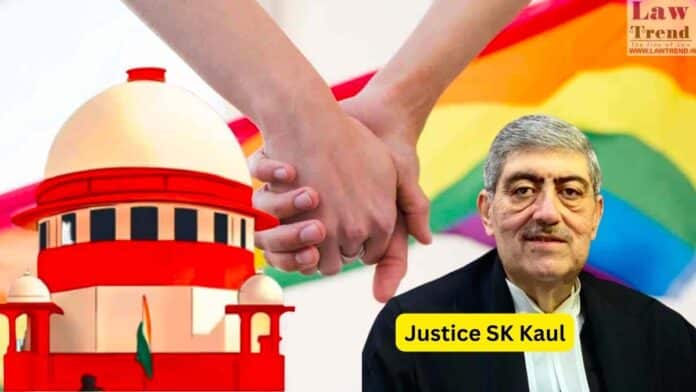Retired Supreme Court judge Sanjay Kishan Kaul, who was part of the top court bench which refused to accord legal sanction to same-sex marriage under the existing laws, said on Friday the case was not strictly legal and involved social issues, and the government may introduce a law in future to grant them matrimonial rights.
Justice Kaul, who demitted office on December 25 after a tenure of over six years in the apex court, said although the goal has now been delayed for the queer community on account of the judgement, a change in society’s view will give an impetus to law to change.
“These are social issues. Sometimes society takes longer to accept something… Law changes, society changes. Sometimes when society changes, it gives an impetus to the law also to change. Maybe the government thinks about it. It has brought a law for other categories of special groups of people (and) it brings in a law,” he said in an interview with PTI.
On October 17, a five-judge constitution bench of the Supreme Court refused to grant legal recognition to same-sex marriage but recognised equal rights for queer people and their protection.
All judges were unanimous in holding that it was within Parliament’s ambit to change the law for validating such union but in a minority view, CJI D Y Chandrachud and Justice Kaul recognised the right of same-sex couples to enter into civil unions.
Also Read
Reflecting on the verdict, Justice Kaul said it was not necessary that success in such matters is achieved in “one go itself” as even the road to decriminalisation of consensual gay sex under the Indian Penal Code was long, and the majority’s view in the recent verdict on same-sex marriage was an opinion relevant for this time period.
“There was a consensus (among the five judges) that it would be difficult to give marriage rights because it has many cultural, religious issues. So what was looked into was whether under the Special Marriage Act could this be fitted in. Again there was a consensus that it would be difficult to do so. But the minority view was we could give something almost as much by putting it as civil union. The majority view was it could not be done. That’s the opinion. What will happen 5 years hence, 10 years hence, is another matter,” he said.
“Certainly it has been delayed. When the majority says it can’t be done now, it can’t be done now. That’s the position…Time period is something which helps out in this because these are not strictly only legal matters. These are social reflection matters,” Justice Kaul said.
The former top court judge added there was a difference in the way different generations thought. This, he said, leads to “generational shifts” on issues in future.




